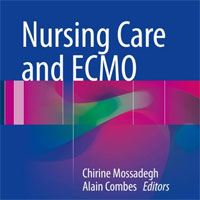Tag: ICU

Hospital-acquired Infections – Adding Process Metrics
So far, we've only been looking at metrics that are really big and important. This is certainly a good place to start. To move beyond this, I'd like to introduce the concept of Outcome vs Process Metrics. Outcome Metrics... read more

Early or Delayed Cardioversion in Recent-Onset Atrial Fibrillation
In patients presenting to the emergency department with recent-onset, symptomatic atrial fibrillation, a wait-and-see approach was noninferior to early cardioversion in achieving a return to sinus rhythm at 4 weeks. The presence... read more

ICU Survivors Have a Substantial Higher Risk of Developing New Chronic Conditions Compared to a Population-Based Control Group
ICU patients have more chronic conditions during the year before ICU admission compared with a population-based control group and a five times higher odds on developing one or more new chronic conditions compared with the... read more

Telemedicine Reduces ICU Mortality Rate at Valley Health
During the first year of tele-ICU at Valley Health, the technology helped save 125 lives, achieve a 35 to 44 percent reduction in ICU mortality rate, reduce ICU length of stay by 34 percent, reduce the sepsis mortality rate,... read more

Psychology Consultation Patterns in a Medical ICU
Intensive care unit (ICU) survivors frequently experience long-lasting mental health, cognitive, and physiologic challenges. Psychologists have a role in providing interventions to reduce patient distress during critical... read more

Intrathoracic Pressure Regulation Therapy Applied to Ventilated Patients for Treatment of Compromised Cerebral Perfusion from Brain Injury
These data support the notion that active intrathoracic pressure regulation, in this limited evaluation, can successfully augment cerebral perfusion by lowering intracranial pressure and increasing mean arterial pressure... read more

Association of ICU Delirium with Sleep Disturbance and Functional Disability After Critical Illness
After adjusting for important covariates, total days of MICU delirium were significantly associated with increased post-discharge sleep disturbance. Delirium incidence showed a trend toward association with increased functional... read more

Mobilization is Feasible in Intensive Care Patients Receiving Vasoactive Therapy
In our ICU, patients mobilized on approximately one-third of vasoactive days. Clinicians should anticipate a higher risk of hypotension during mobilization in patients receiving vasoactive therapy, which may require transient... read more

Identifying Barriers to Nurse-Facilitated Patient Mobility in the ICU
Nurses have limited time for additional clinical activities but may miss potentially important opportunities for facilitating patient mobility during existing patient care. The proposed method is feasible and helpful in empirically... read more

Physician-Level Variation in Outcomes of Mechanically Ventilated Patients
Physicians are increasingly being held accountable for patient outcomes. Yet their specific contribution to the outcomes remains uncertain. Intensivists independently contribute to outcomes of Medicare patients who undergo... read more

Age- and Gender-related Peculiarities of Patients with Delirium in the Cardiac ICU
Our investigation presented a number of associated peculiarities related to gender and age. It was shown that delirium is a severe complication that more often affects men amongst patients < 65 years old and more frequently... read more

How Should We Relate to Unreasonable Families in the ICU?
Most families have never suffered through a loved one experiencing prolonged critical illness and respiratory failure (defined as ventilator dependence for weeks, usually with a tracheostomy). But each year, more do. An estimated... read more

The CAM-ICU-7 Delirium Severity Scale: A Novel Delirium Severity Instrument for Use in the ICU
The CAM-ICU-7 delirium severity scale is a valid, reliable, and practical delirium severity measure among ICU patients that can be easily calculated and is associated with meaningful clinical outcomes. This practical tool... read more

Sleep Deprived-Patients in ICU May Fail to Get Off Ventilation
Attempts to wean intubated, critically ill patients off mechanical ventilators were less successful when the patients exhibited atypical sleep or pathological wakefulness, researchers reported. The findings suggest that sleep... read more








